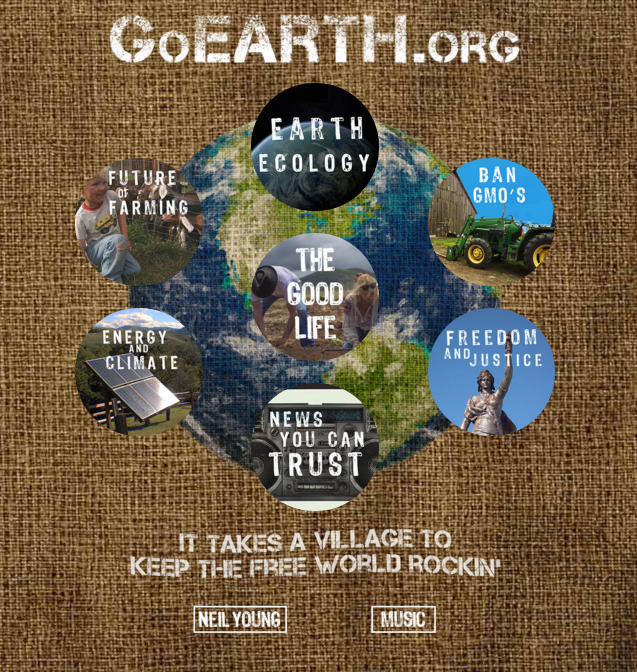Musical activism: The listener’s social responsibilities
Time and time again, musicians have been known to take political stances on issues ranging from civil rights, labor equality and environmental conservation. They’re able to use their popularity as a platform to define political stances and garner support for these issues. In the 21st century, we see that more and more artists are attempting to bring light to political issues they feel are important.
Neil Young’s 36th album, The Monsanto Years, takes a strong stance on Monsanto and Starbuck’s use of genetically modified organisms (GMO) in their products. Following the June 29 release of his new album, Young launched a website called GoEarth.org this month. It provides information on topics ranging from earth ecology and the future of farming to climate change and social causes.
The goal of the website is illustrated by the mission statement, “It takes a village to keep the free world rockin’.” There are seven links — “Earth Ecology,” “Future of Farming,” “Energy and Climate,” “The Good Life,” “Ban GMOs,” “freedom and justice” and “News You Can Trust” — that lead the viewer to different pages where they can connect with organizations and services that advance Young’s stance on environmental issues.
Neil Young isn’t the only one who is using his music and fame as a platform to express political views and activism.
Through their work too, Beyoncé is advocating for gender equality, Jessie J for anti-bullying and Desaparecidos for the NSA monitoring large insurance companies and Wall Street.
They are following in the footsteps of historic artists such as Bob Dylan, Buffalo Springfield and Creedence Clearwater Revival. One standout musician-activist that also comes to mind is Pete Seeger, who was arrested for his opposition of the Vietnam War by the House Un-American committee.
These political issues are gaining increasing support through big-name endorsements and popular music. Because so many look up to these artists and admire their work, it’s relatively easy for them to gain support for any political statement they make, and effectively promote their message.
Though many of these musicians do promote great causes, it’s also quite easy to be fooled into molding our own beliefs to the popularized beliefs of these artists. It is up to us, the listener, to decide for ourselves what we believe is important and worth advocating for. We need to do our own research instead of blindly following the beliefs of popular media. These ideas sound good, but we must also be wary and recognize that there are two sides to every story.
Don’t drink the Kool-Aid.

